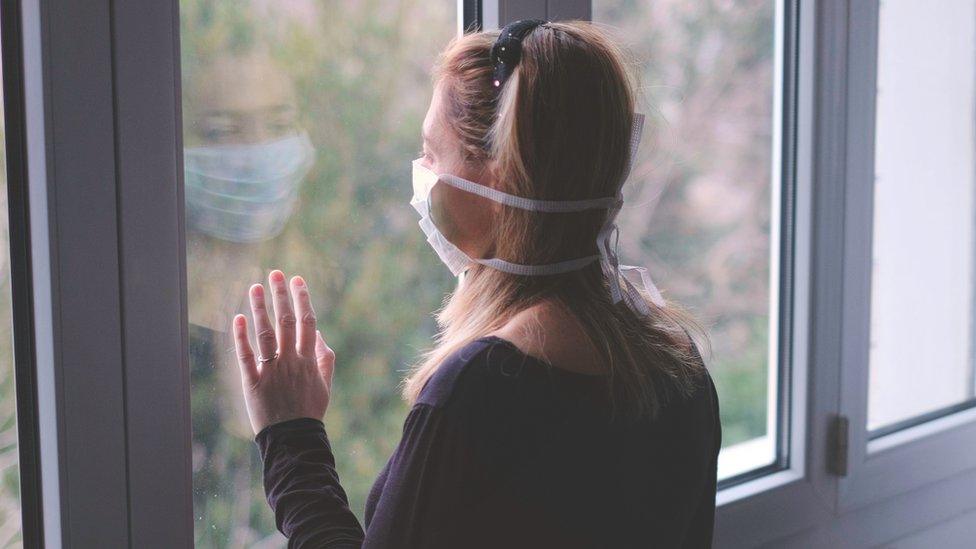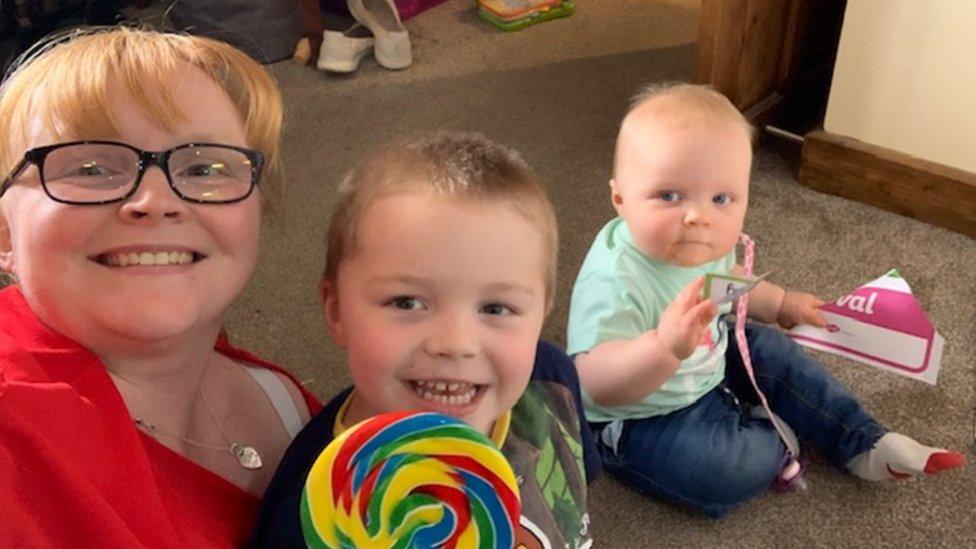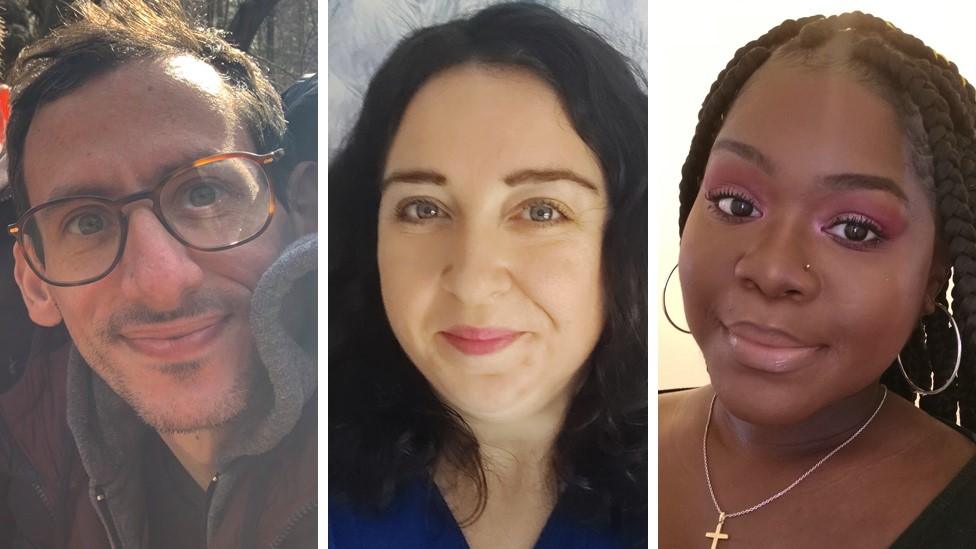Coronavirus: Shielding to stop at end of July in England
- Published

The 2.2 million people who have been self-isolating in England during the pandemic will no longer need to shield from 1 August.
From 6 July, they will be able to meet up outdoors, in a group, with up to five others and form 'support bubbles' with other households.
The measures can be eased because infection rates are falling, the government says.
Support packages will remain until the end of July to help people transition.
What changes from 6 July?
Those who are shielding and live alone in England - including single parents who are shielding - will be able to create a support bubble with one other household of any size.
This follows the 'social bubble' rules which were introduced earlier this month for anyone living alone and single-parent households.
People shielding will also be able to meet in groups of up to six outdoors while maintaining social distancing rules.
What is changing from 1 August?
Extremely vulnerable people who are most at risk from becoming ill from coronavirus will no longer need to shield in England.
That means they can return to work, if they can't work from home, as long as their workplace is COVID secure, external.
However, they should still follow social distancing guidelines when outside their homes and wash their hands regularly to reduce the risk of being infected.
The changes mean those shielding will no longer be eligible for statutory sick pay - unless they develop coronavirus symptoms, or someone they know develops symptoms, and they are told to self-isolate and cannot work from home.
Free essential food boxes will stop being delivered, but support from NHS volunteers and local councils is still possible.
They will still qualify for priority slots for online shopping and will be offered help with medicine deliveries and getting to medical appointments.
Why is the advice changing?
The UK government says the advice can be relaxed because the chances of encountering the virus in the community continue to fall - one in 1,700 people are estimated to have the virus now, down from 1 in 500 four weeks ago.
The government says it has worked with clinicians, GPs, charities, the voluntary sector and patient groups on the changes.
But some charities are criticising the relaxing of the advice, saying many of the people they support do not feel it is safe to stop shielding.
"We know how difficult this period has been and the impact shielding has had on many people's mental health," says Dr Jenny Harries, deputy chief medical officer.
"We believe it is the right time to relax some of the advice so people can start to regain a degree of normality once more in their daily lives."
But she added the advice on shielding could change again "if there are any changes in the rates of infection that could impact on this group".
What was the advice in England?
As the country went into lockdown, around two million people were sent letters by their GPs telling them not to leave home and to avoid contact with others.
This was to protect them from the virus because they were considered to be most at risk from Covid-19.
Among the list of people who should be shielding, external are solid organ transplant recipients, cancer patients undergoing chemotherapy, pregnant women with heart disease and people with severe respiratory conditions such as cystic fibrosis and severe asthma.
Over half of those shielding are under the age of 70; more than 90,000 are children.
Since the start of June, people shielding in England were told they could go out once a day - to meet one person from another household while adhering to social distancing.
From the beginning of August, that shielding advice is to be completely relaxed.
The NHS will keep the shielded list, in case more advice needs to given to this group in future.
Natasha Howard has been campaigning for a "shielding hour"
Have things changed in Scotland, Northern Ireland and Wales?
Northern Ireland has already said people will no longer need to shield from 31 July.
But officials say this pausing of the advice will only happen if the rate of community transmission remains low.
People who are shielding and living alone in Northern Ireland will also be able to form a support bubble from 6 July with one other household.
Until then, people shielding across the UK are advised to stay at home as much as possible and to practise social distancing when they go outside.
In Scotland, the advice applies to around 180,000 people and is in place until at least 31 July.
Meanwhile in Wales, almost 130,000 people are shielding and the Chief Medical Officer for Wales says the current guidance runs until at least 16 August., external

Have you been shielding? How will this news affect you? Please share your experiences by emailing haveyoursay@bbc.co.uk, external.
Please include a contact number if you are willing to speak to a BBC journalist.
WhatsApp: +44 7756 165803
Tweet: @BBC_HaveYourSay, external
Please read our terms & conditions and privacy policy
- Published30 May 2020

- Published22 June 2020
